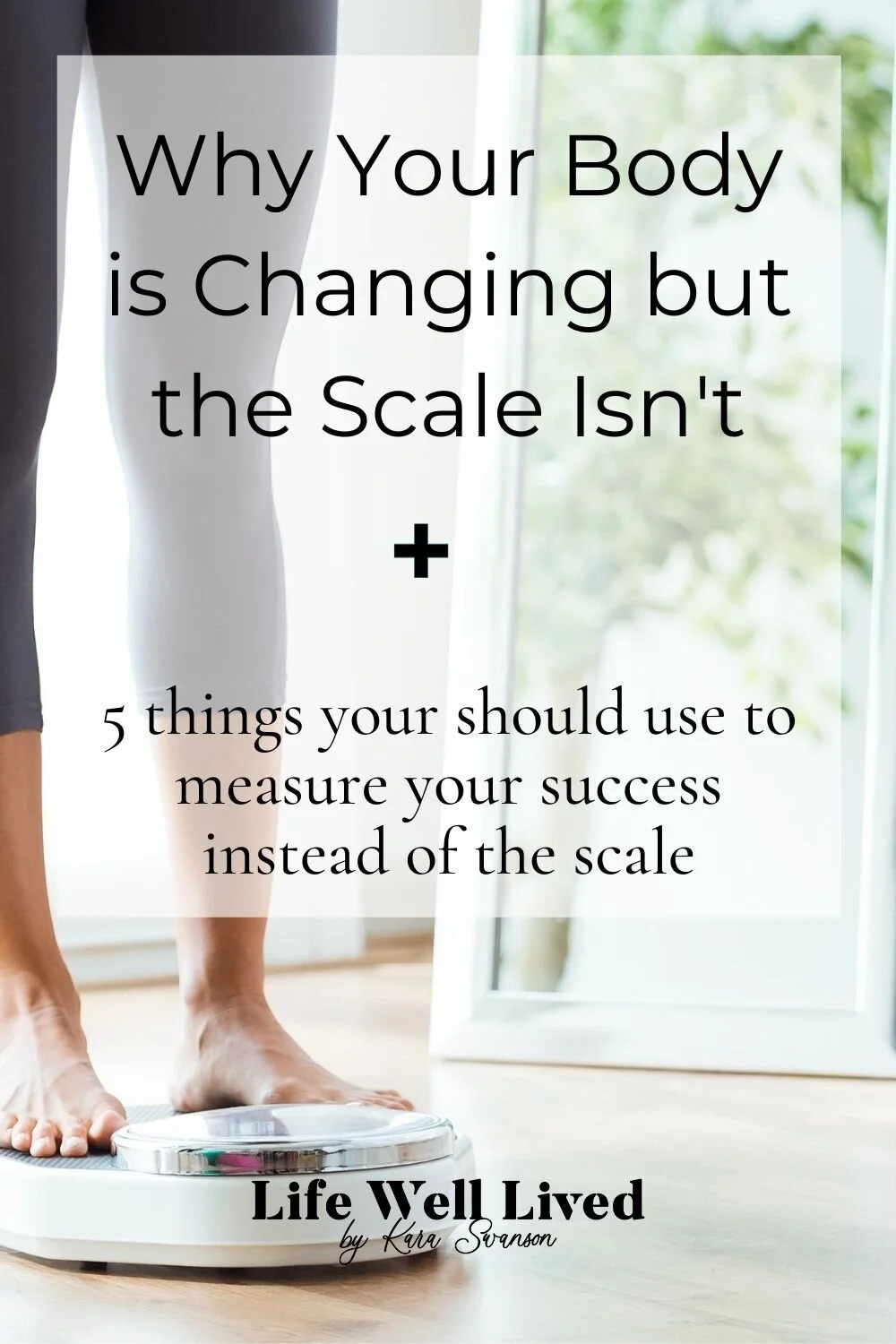Why Your Body is Changing but the Scale Isn't
They say the scale doesn’t lie… And that might be true, but it’s not an accurate measurement of your fat loss progress. We’ve been trained to use the scale as the measure of our success.
But the truth is your body could be changing without the number on the scale reflecting it.
And while it’s encouraging to watch the number on the scale get smaller, especially in the beginning when you’re trying to lose weight, it’s not always an accurate explanation of what’s happening within your body.
I’ve heard countless women explain how they’re fitting into clothes they haven’t been able to for years and noticing their body changing (ie, more toned) but remain frustrated because the number on the scale isn’t dropping.
A change in body composition
Maybe it’s happened to you: you’re eating right and working out, your old jeans are fitting again, but the number on the scale isn’t much different.
Why is this?
It’s because your body’s composition is changing. Your body is turning fat into muscle. This is especially true if you’re regularly exercising.
Your body’s fat is transforming into muscle, which is good news!
Muscle tissue vs. fat tissue
You may have heard a pound of muscle is heavier than a pound of fat, but it’s not true...in fact, it doesn’t make sense. A pound is a measurement of weight not volume. So they weigh the same amount.
However, if you were to take equal volumes of muscle and fat, the muscle would weigh more. Muscular tissue takes up less physical space in your body but weighs more.
The reason for this is muscle tissue is denser than fat tissue. So, you could be getting skinnier and more toned but not lose any pounds. Instead, in this situation, your bod’s fat tissue is transforming into muscle.
Body composition definition
What is body composition exactly? It can be defined as the percentages of fat, bone, water, and muscle in the human body. Since it accounts for muscle, it’s an even more accurate measurement than BMI.
BMI (Body Mass Index) only accounts for your body’s height to weight ratio. You could be a 120-pound toned 5-foot bodybuilder or a 120-pound 5-foot couch potato and have the same BMI.
But body composition takes into account what the 120-pounds are made of. Whether they’re mostly fat or mostly muscle.
Building muscle vs. shedding pounds
It’s often been said that the kitchen is for losing weight and the gym is for building muscle. And I completely agree. We’re often misled to believe we can out-train bad eating habits.
But it’s simply not possible.
If you want to shed unwanted fat then you need to get your nutrition under control.
Don’t use the scale as your only measurement
You need to use more than the scale to measure the success of your health & fitness goals.
Here are five other measurements of success:
1.What you see in the mirror
There’s no shame in looking at yourself in the mirror. And yes, it may be a subjective measurement, but it’s a wonderful feeling to love what you see in the mirror.
2.How your clothes fit
Is there a little more room in your jeans? Or maybe you’re able to get into a pair you haven’t been able to for a while. That’s a huge success!
3.How you feel
When you start to eat right and exercise you’re simply going to feel better. You’ll have more energy, be able to sleep better, and you’ll also experience increased confidence.
4.Your physical strength
I always get excited when I can start using heavier weights while working out. Or when I can add to my push-ups. When your body composition begins to change you’ll notice an increase in strength.
5.Body fat percentage measurements
There are many ways to calculate your body fat percentage – some more accurate than others. Whatever method or tool you use, it’s a good measurement to track periodically.
Watch more than the scale
So don’t be discouraged if the number on the scale isn’t changing as fast as you’d like. If you’re managing your nutrition and moving your body, you are well on your way to a healthy body! Use different measurements to gauge your progress too—-the scale is only a fraction of the whole picture when it comes to your health.


